The 6 things that surprised me the most on my first international trip since COVID-19
Signing up for credit cards through partner links earns us a commission. Terms apply to the offers listed on this page. Here’s our full advertising policy: How we make money.
Last week I took a single-day trip to Mexico to take advantage of an incredible travel deal that’s currently available (that’s a story for another time), and wow — there are a few aspects of travel that have morphed considerably since I last had an international trip in 2019.
Yeah, most of the travel process is more inconvenient and less fun. But there are a couple of things that are much, much better than before. I’ll give you a quick rundown of the most striking aspects of my trip. If you haven’t gotten out in a while, expect to encounter these!
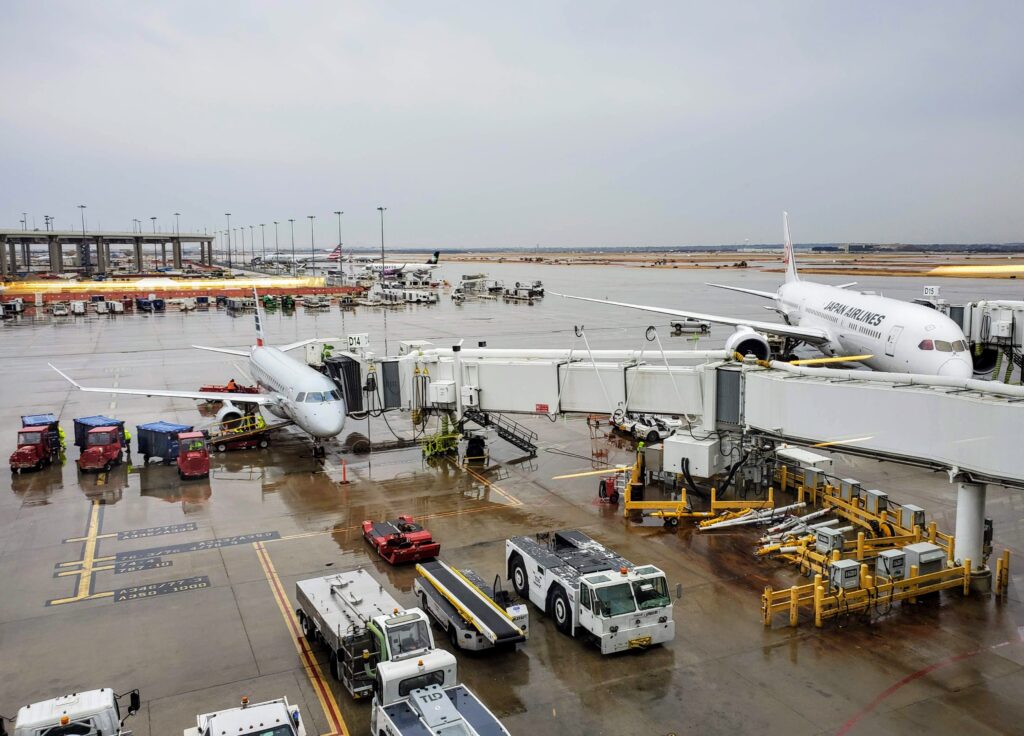
The 6 things that surprised me about international travel
1. Global Entry was even faster and (almost) hands-free!
Global Entry is a program that allows you to skip the immigration line when returning to the U.S. after international travel. After disembarking from your flight, simply follow the Global Entry signs to find exclusive kiosks apart from the regular line. At the kiosk, all you have to do is the following:
- Scan your passport
- Answer a few questions (Did you handle livestock? Have you returned with foreign produce in your bags? Etc.)
- Scan your fingerprints
- Look into the kiosk’s camera and take a picture of your face
A slip of paper will print out with your face on it. Walk to the exit and hand the paper to the security officer. All this takes about a minute and a half if you’re taking your time. Not bad considering immigration lines can last hours. Read our post on how to get Global Entry for free.
However, when I arrived at the kiosk this time, the screen indicated that some changes had been made to streamline the procedure. If you can’t read the screen below, it says “We have changed our process to improve your time at the kiosk. On the next screen, press the camera icon to capture your photo.”
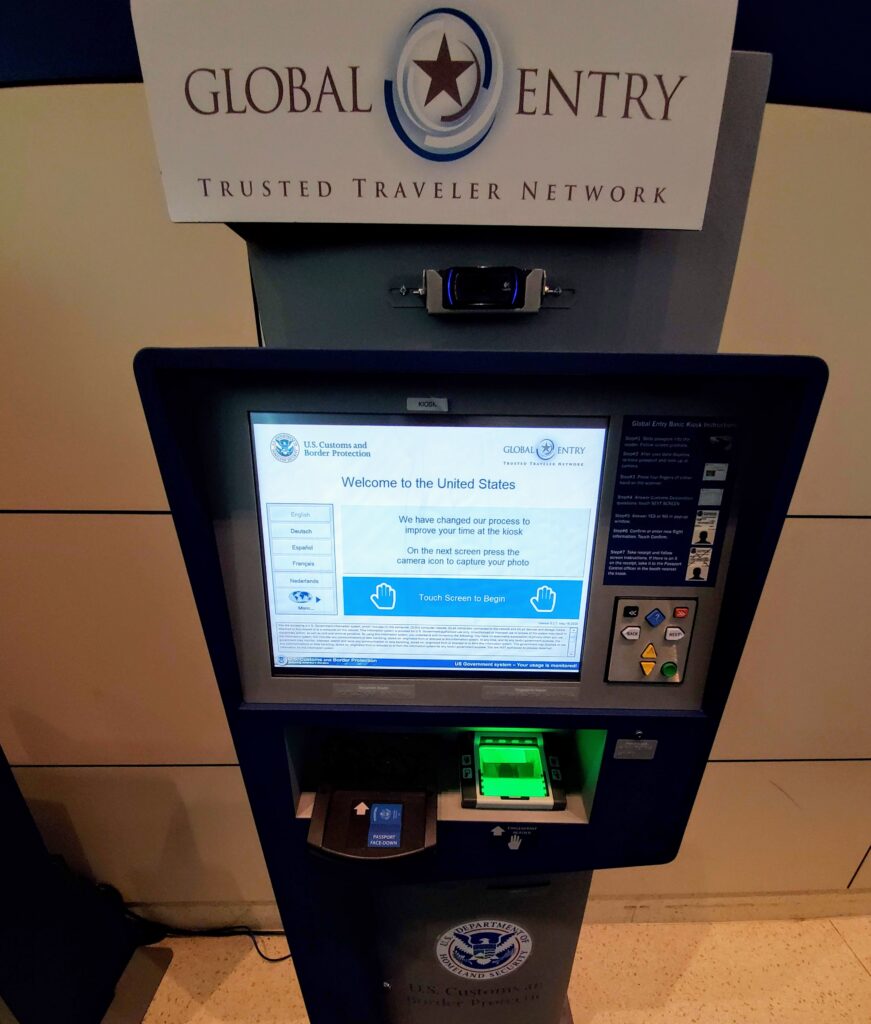
One quick tap on the blue box that says “Touch Screen to Begin,” and the camera popped up on the screen with the silhouette indicating where you should put your face. I put my face in the proper location, tapped again to take my picture, and my paper printed out. It had all my personal and travel information on it. I didn’t input a thing — I didn’t scan my passport, I didn’t provide my fingerprints. Two taps, and facial recognition did it all for me.
2. Lounges were open, but awkward
Routing through Dallas, I walked around to take a look at the airport lounges. I have a free Priority Pass membership thanks to a travel credit card (a comparable Priority Pass membership costs $429 per year), so I was able to enter a handful of lounges in Dallas for no charge.
I checked out the Minute Suites and The Club at DFW. Both looked relatively normal, except for the many signs of caution and coronavirus-related rules adorning the exterior. The Lounge at DFW has been open since July, so they’ve got plenty of experience in dictating COVID-19 policies. Tables placed strategically, alternating chairs wrapped in social distancing caution tape.
And while the buffet options were slightly more limited, and the staff was extremely helpful, nothing could make up for the fact that the food was roped off. The lounge has a staff member, masked and gloved, dedicated to getting your food for you. If you want a bagel smeared with cream cheese, you’ll have to request it and watch from a distance.
This was off-putting to me as it felt less safe to have someone else handling my cheese cubes. The whole process feels like a big hassle for a slice of bread that’s already wrapped in plastic. I only ended up using the lounge’s outlets — no food, no drink.
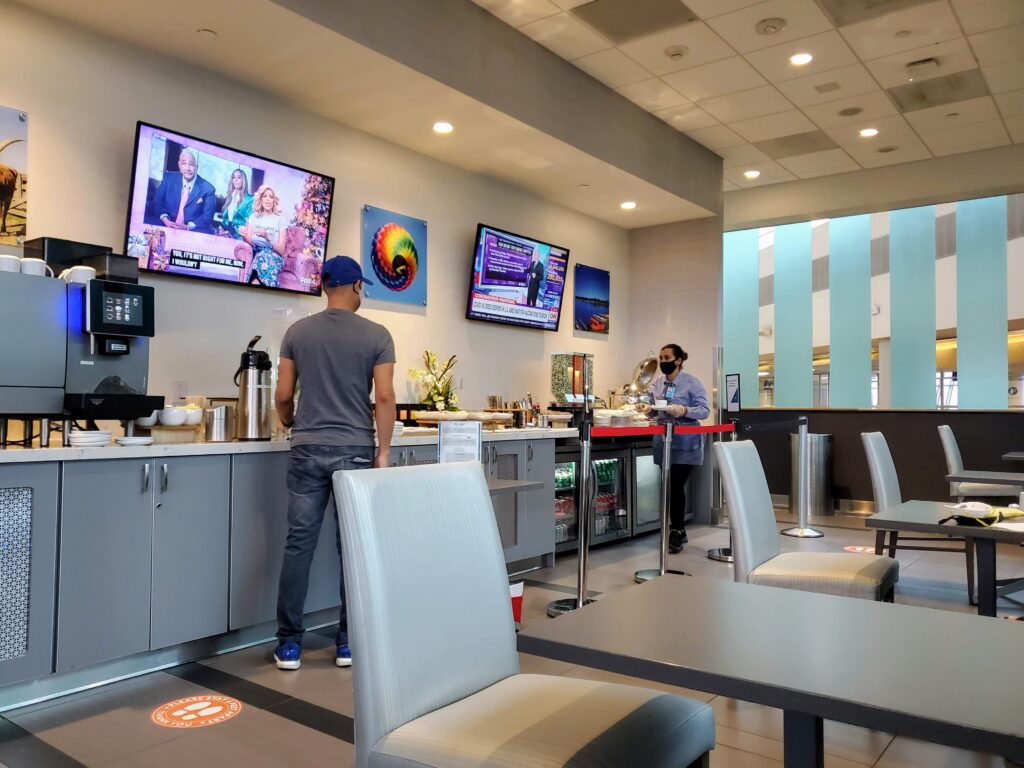
3. The Uber situation is worse
Uber drivers are hyper-sensitive, from making sure the passengers they drop off come nowhere near the passengers they pick up to installing a thick plastic partition between the front and back of the car. Whether that’s because they are afraid of getting coronavirus, distributing it themselves, making sure you feel safe, or getting a five-star review for going above and beyond, it’s nice to see the effort.
But Uber drivers may be taking advantage of these new policies to do things that they’d have previously been penalized for.
Upon arriving in Mexico, my driver pulled up to me at the airport to let his current passengers out. As I walked toward his car, he rudely waved me off, in a manner as though you might see someone shoo a beggar away from their driver’s side window. Immediately, I received an email from Uber stating that my driver canceled my ride because I wasn’t wearing a mask. I absolutely was wearing a mask.
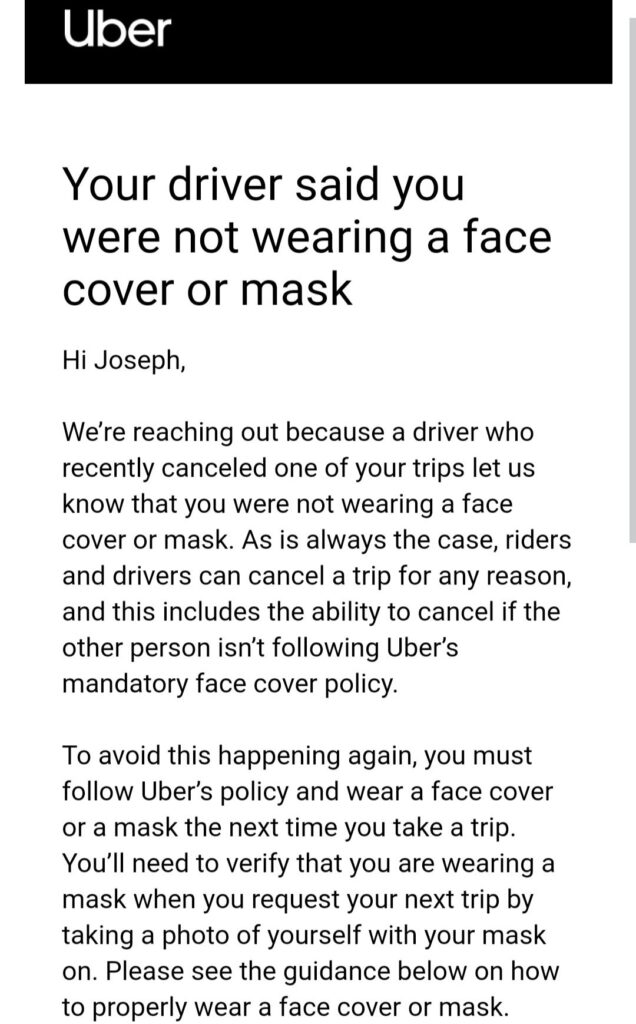
Not sure if he found a more lucrative passenger somewhere else, but it left me irate, considering I had already waited about ten minutes for the guy. It put me in mind of when FedEx drivers aren’t in the mood to deliver to your address, so they mark your package as “Delivery Exception: Business closed/recipient not home.” A quick click or two and the drivers are off scot-free.
4. TSA PreCheck and Global Entry didn’t save hardly any time
Similar to Global Entry, TSA PreCheck exists to save you time at the airport. When you’re flying domestically, you won’t have to take off your shoes or belt at security checkpoints. You can even leave your laptop and small liquids in your bag instead of placing them in a separate bin. TSA PreCheck has dedicated lanes that are almost always significantly shorter than the regular line.
However, during my trip, neither of these programs were huge time-savers — presumably because not many people are traveling right now! Here’s the sign estimating wait times for security checkpoints in Dallas.
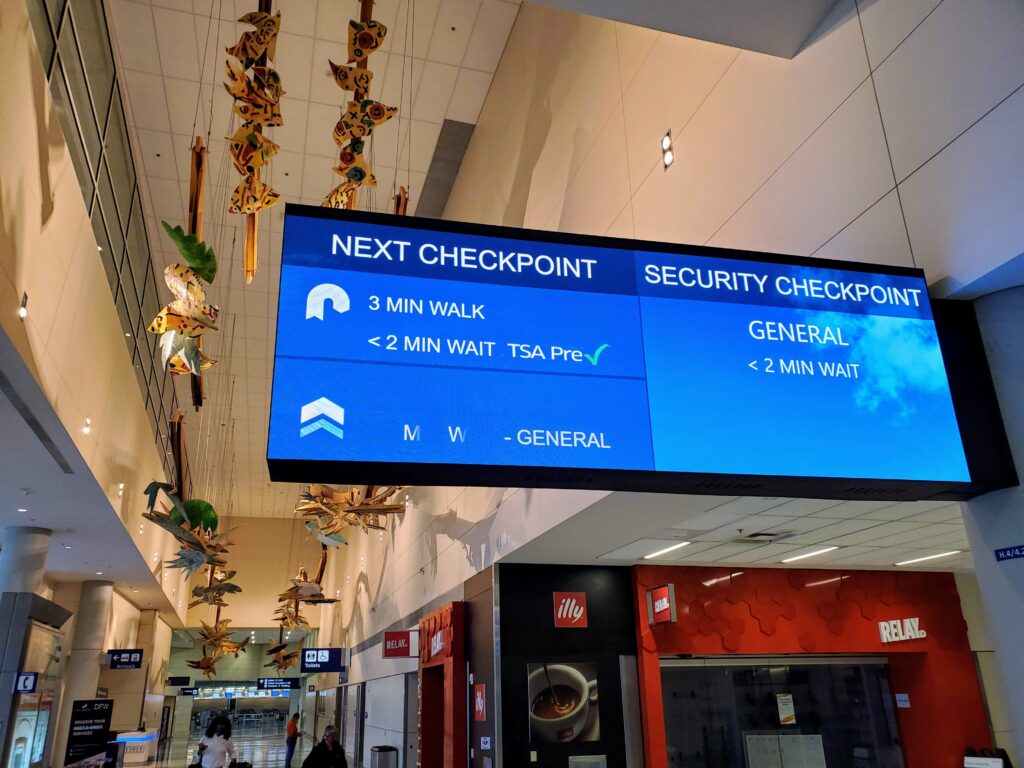
As you can see, both the TSA Pre and standard security lines had the identical “less than two-minute wait” — nobody was in either lane.
And here’s a look at the Global Entry line vs. the standard immigration line. Both say “less than two-minute wait.” This one actually wasn’t totally accurate. I’d have estimated a five-minute wait through the regular line. But when it’s that short, it’s not a big deal anyway.
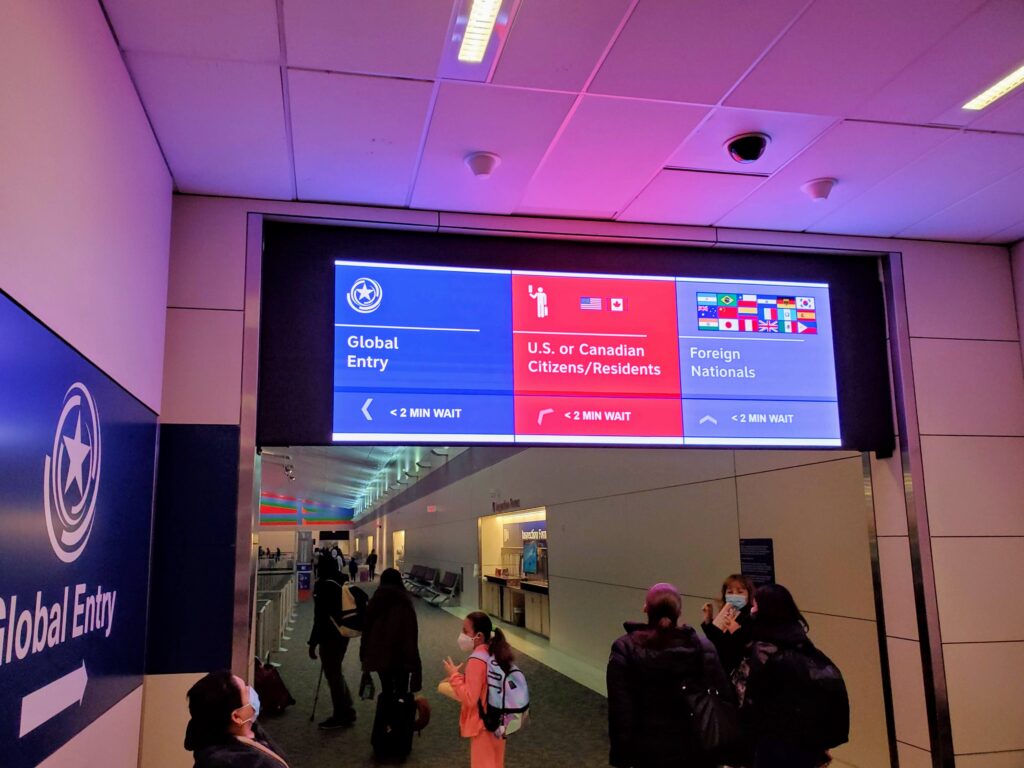
Read our post on TSA PreCheck vs Global Entry to learn more about the programs (you can get them both for free with just a single travel credit card). After all, TSA PreCheck is worth it now more than ever.
5. Everyone is waving around those temperature guns
I bet my forehead was gunned six times during my trip — three times during my outbound journey, once at my hotel, and twice during my return journey. Because of this, I’d say it’s quite important to get to your gate with plenty of time to spare. There have been warnings about sprinting to your gate and working up your core temperature, which could potentially cause you to be denied boarding. If you’re sick, airport staff is dedicated to finding out.
6. Hotels may be more concerned with company policy than safety
Despite all the evidence about which masks are best to combat the spread of COVID-19, the Hyatt I stayed at doesn’t seem to be that bothered. The complimentary “masks” I found in my room indicate that they may be interested in abiding by guidelines they’ve set to put travelers at ease — but they’re clearly ok with guests doing the absolute bare minimum to follow the rules.
These Hyatt Place “masks” in my hotel room were beyond pathetic. At best, they were a decoration for your face — they had nothing to do with safety. As you can see, they were thin as tissue paper and made from rough, porous material. They were absolutely not better than nothing. Was their purpose to shame travelers into buying their own real mask so they don’t have to wear these around the hotel?
They do fulfill the requirement of “face covering.” However, these things were theatrics at best to make other guests feel safe.
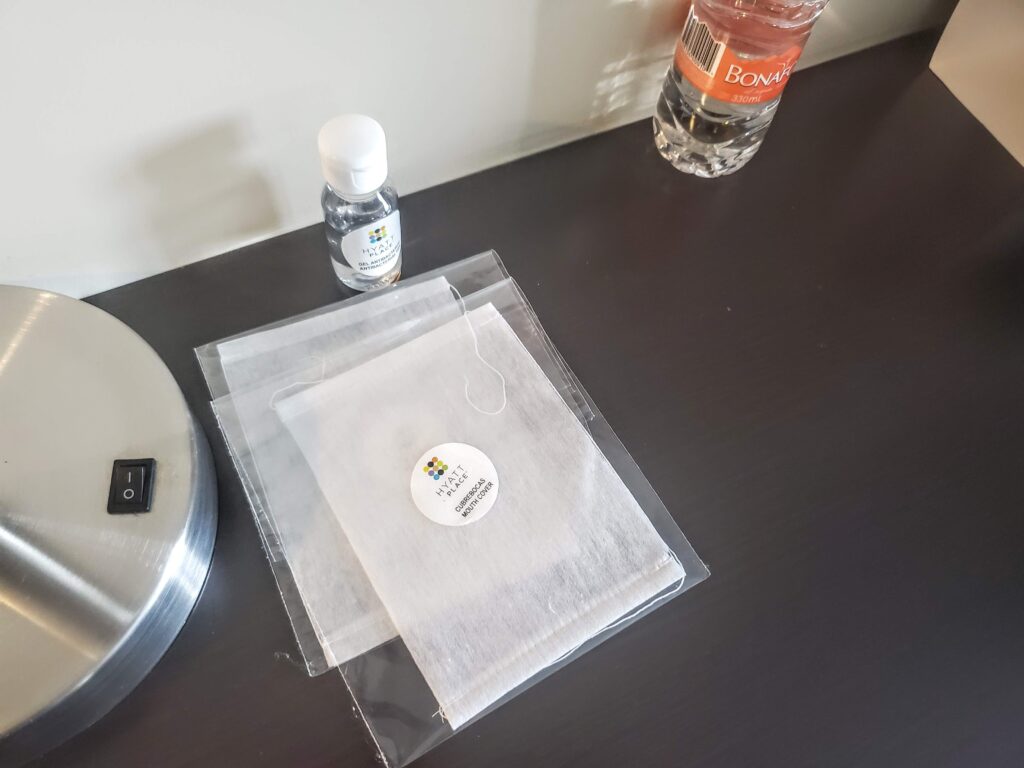
Bottom line
At no point during my trip to Mexico did I feel unsafe, and I received the same vibe from everyone I encountered. Of my four flights, only once did I have a seatmate. Everyone wore their masks religiously. Traveler temperatures were taken often. Some airport processes were streamlined to allow for fewer touchpoints and reduced time in lines.
In most cases, the travel industry seems to be adapting well to our current reality — although the “mask” situation at my hotel shows there is still room for improvement. As the coronavirus vaccines begins to roll out, hopefully it can jettison these policies as life begins to normalize.
I’d love to hear any surprises you’ve encountered during your recent travels! And subscribe to our newsletter for more posts like this delivered to your inbox once per day.
Editorial Note: We're the Million Mile Secrets team. And we're proud of our content, opinions and analysis, and of our reader's comments. These haven’t been reviewed, approved or endorsed by any of the airlines, hotels, or credit card issuers which we often write about. And that’s just how we like it! :)






Join the Discussion!